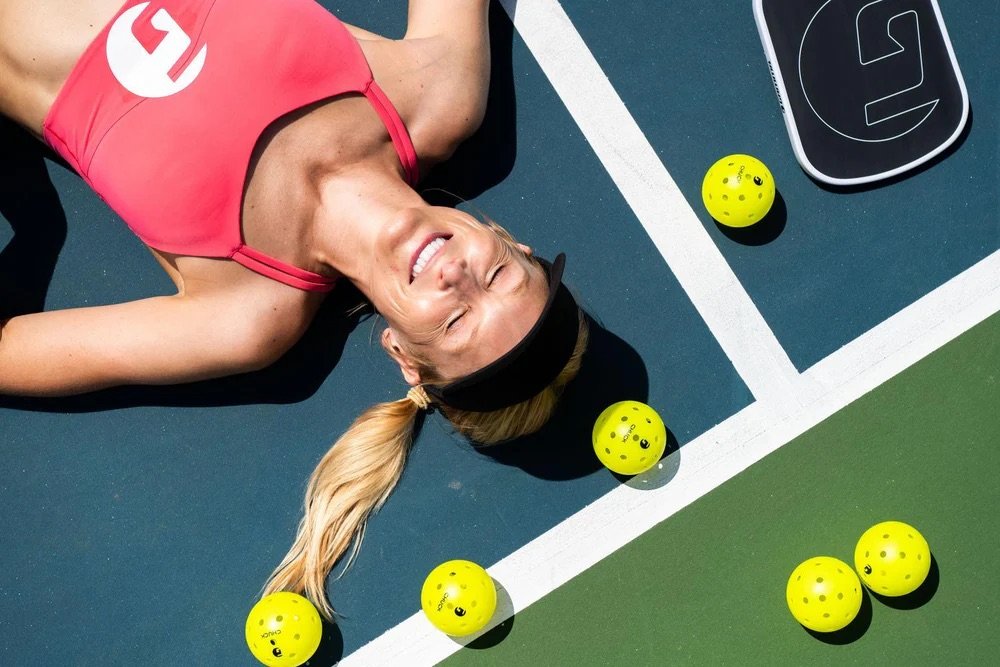From Frustration To Focus: Mental Strategies For Pickleball Success
We’ve all been there: the missed easy shot, the partner miscommunication, the close game slipping away. Frustration in pickleball is real—and if you’re not careful, it can hijack your entire performance. The good news? It doesn’t have to.
While physical skills are essential, mental strength is often what separates the good from the great. The ability to manage emotions, reset quickly, and stay focused under pressure is a true competitive edge. In this article, we’ll explore practical mental strategies to help you turn frustration into focus—and start playing your best pickleball.
Source: Gamma Sports
1. Accept The Chaos Of The Game
Pickleball, by nature, is unpredictable. Nets are hit. Balls take strange bounces. Even pros miss routine shots. Frustration often stems from unrealistic expectations—expecting perfection in an imperfect sport.
The first step toward mental resilience is accepting that mistakes are part of the process. Not just yours, but everyone’s. Once you make peace with that, it becomes much easier to move forward without emotional baggage.
2. Reframe Mistakes As Feedback
Instead of letting errors derail your confidence, reframe them as information. A missed third shot drop? That’s feedback about your timing. A lost rally after a rushed return? A reminder to slow down.
This mindset shift allows you to stay curious instead of critical. Curiosity keeps you calm. Criticism builds tension—and tension is the enemy of performance.
3. Develop A Between-Point Routine
What you do between points has a huge impact on how you show up for the next one. A consistent between-point routine helps you reset emotionally, clear your head, and refocus your energy.
Try something like this:
Take a deep breath.
Wipe your paddle or tap it with your partner’s.
Say a cue word like “Next point” or “Let’s go.”
These tiny habits help break the cycle of rumination and put you back in the present moment.
4. Focus On What You Can Control
It’s easy to spiral when you start focusing on things outside your control—your opponent’s lucky net cords, line calls, or your partner’s errors. But staying mentally sharp means narrowing your attention to what you can control:
Your shot selection.
Your footwork.
Your communication.
Your attitude.
The more you focus on controllables, the more grounded and empowered you’ll feel—regardless of the scoreboard.
5. Use Positive (But Realistic) Self-Talk
Telling yourself “I’m the best” when you’re double-faulting isn’t always helpful. But constructive self-talk can shift your state in a meaningful way. Instead of spiraling into negative loops like “I always mess up,” replace them with phrases like:
“I’ve hit this shot a hundred times.”
“Just focus on one thing—good contact.”
“I’ve come back from worse.”
It’s not about blind optimism. It’s about reinforcing belief in your ability to bounce back.
6. Breathe. Then Breathe Again.
Under pressure, the breath is your anchor. When you’re frustrated or nervous, your breathing becomes shallow—and that affects your timing, decision-making, and body language. One deep, intentional breath can slow your heart rate and sharpen your focus. Make this a habit, especially during high-stress points.
7. Practice Mental Skills Like You Practice Your Dinks
Most players spend hours drilling serves and volleys, but forget that mental skills are trainable too. Use practice matches to intentionally work on your composure:
Challenge yourself to stay neutral after every point.
Try to recover mentally within five seconds of a mistake.
Visualize calm responses before you even step on court.
The more you train this mindset, the more automatic it becomes.
Final Thoughts: Win The Inner Game
At some point in every match, you’ll be tested—not just by your opponent, but by your own emotions. Learning how to shift from frustration to focus is what keeps you grounded when the pressure rises. It’s what allows you to enjoy the game more, play more consistently, and unlock a new level of performance.
Because in pickleball, just like in life, the most important rally is often the one happening inside your head.

